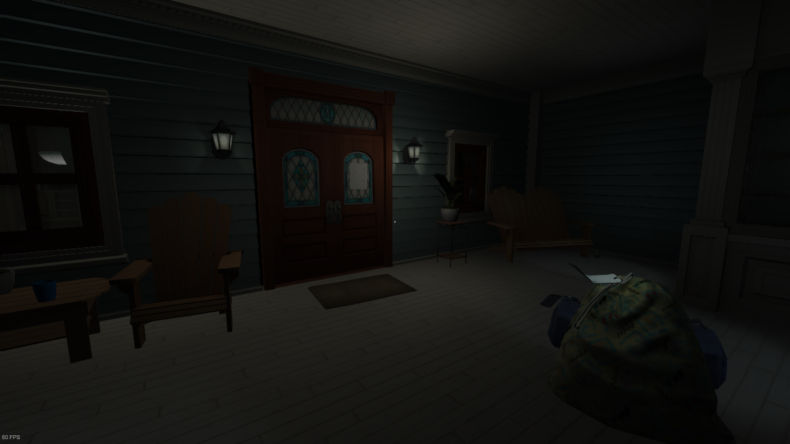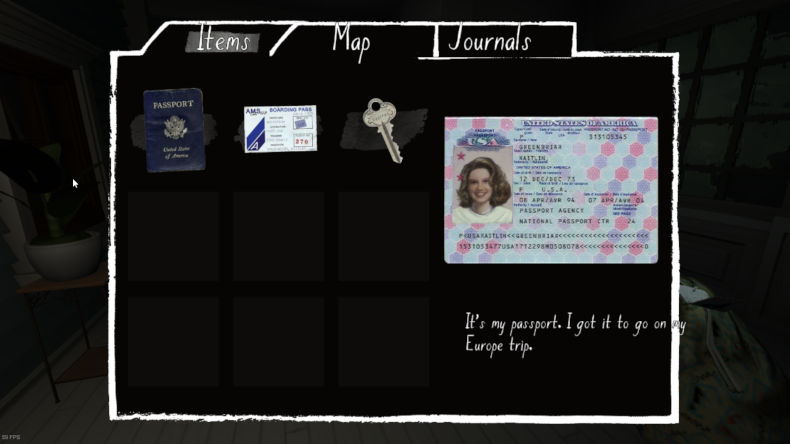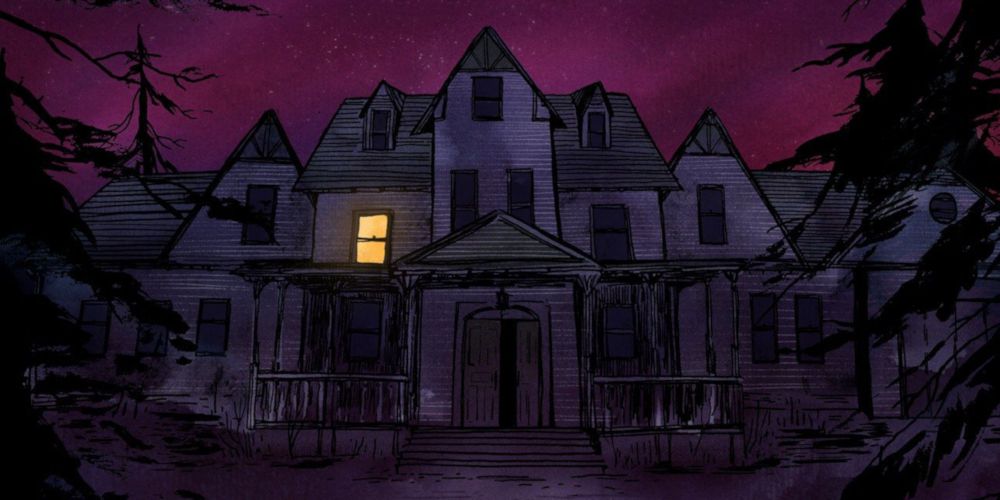Gone Home is an important video game, if for no other reason than that it forces us to confront and grapple with two commonly asked but oft-swept-aside questions: On what basis should games be judged, and when does a piece of media start being a game?
First released in 2013 to critical praise but an otherwise ambivalent reception elsewhere, Gone Home stirred up controversy in its time—not only for its unconventional subject matter, which I'll touch on below, but also because it doesn't quite have all the components that comprise a "game." Is it interactive? Yes, and for some, that's the only essential bit that matters—but others, myself included, demand more. Not many would call Netflix's Bandersnatch interactive film a "game" despite the viewer having some agency in directing the narrative; to me, Gone Home feels a lot like that.
But I'm getting ahead of myself. Let's lay some proper groundwork.
Gone Home is a first-person exploration game where you play as Katie, a 20-year-old who has just returned to her 1995 home in Oregon to find that the house is completely empty. By exploring the house, you encounter clues that drive the narrative forward toward an explanation of what happened.
A leisurely playthrough will have you reaching the end within 2 hours.
The Good
The Fullbright Company deserves praise for successfully creating an immersive environment that evokes emotion. The house that Katie returns to is disheveled, and the story takes place at night during a raging storm, with heavy rain patter punctuated by peals of thunder. All of this comes together to create an eerie atmosphere of darkness, mystery, and uncertainty. The textures, the sounds, the mood—I was scared at points, and as much as I hate horror, I almost stopped playing because of it. Don't get me wrong: Gone Home is no Amnesia. But the suspense is palpable.

And the writers deserve the recognition they've received for telling a story that, at least at the time of its release, wasn't told very often. The themes of young love, childhood innocence, and LGBT strife are smaller in scale and far more intimate than the grand, epic, save-the-world plots that are so common in video games, and it's clear that this was a quieter story that The Fullbright Company felt was important to tell.
The Bad
Despite my praise for Gone Home's suspenseful atmosphere, I can't help but feel like the victim of a bait-and-switch. Minor spoilers:
The setup, the environment, the clues you find along the way all seem to say that this is a horror story. I suppose it is in a way, but everything from the start appears to point to this as a traditional haunted house mystery. Some of the story elements are even manipulative, particularly the offhand references to a ghost and the ambiguous messages and staging that prime you for one character's suicide. It's intentionally misleading, and while that in itself isn't a bad thing, the misdirection here doesn't serve the story in any meaningful way, and therefore comes off as cheap.
That aside, my primary criticism of Gone Home is that you can watch a YouTube playthrough of it and have the same fundamental experience as if you had played it yourself. It's not like Bastion where you can watch a full playthrough and absorb the story but still want to play it yourself for the gameplay; Gone Home is strange in that if you've seen a playthrough of it, then you've essentially played it yourself.
And it's not just because Gone Home is a linear story in the form of a "walking simulator," as some have called it. Time Crisis, the arcade on-rails shooter, is the epitome of walking simulators—it walks for you, for crying out loud—but no one can watch another play Time Crisis and honestly declare that they, too, have reaped the same experience as if they had played it themself. Time Crisis involves a test of skills, individual decisions that affect the outcome, and active engagement in how it progresses. Those things are missing from Gone Home, in which there's no experiential difference between playing and watching—and if there's no experiential distinction between playing a title and watching it be played, that's a sign that maybe it shouldn't have been a game.
Which raises the question: Why was Gone Home produced as a game?

At heart, Gone Home wants to be a game of discovery. You're called to investigate all the pieces and put them together to discern what happened in this empty house. This may sound fine on paper, but the problem is, the exploration in an exploration game always exists to serve the gameplay. An exploration game without gameplay is, at best, a disjointed first-person POV film. At worst, it's one step removed from loading an environment in Blender or Unity and zooming the camera around, which hardly qualifies as a game.
There's an interesting story buried somewhere among the pieces, but that story isn't the one told by Gone Home. By presenting this story in the form of a mystery investigation "game," it detracts from its own drama. This could have been a beautiful filmic tale if told from the points-of-view of Sam and Lonnie, the real protagonists who have real stakes and real drama to unfold. Sadly, putting us in the shoes of Katie, who arrives after all the events have already transpired, weakens the impact. With nothing at stake, with no sense of urgency, the end product is nothing more than a vignette. It's here, it passes by, and you move on.
The Verdict
Would Gone Home have received the same acclaim if everything was the same except that Sam were a boy? No, I don't believe so, and that's really the nail on Gone Home's coffin as a game: there is no interesting gameplay here. All of its praise rides on its subject matter, and there's no reason why this had to be a game. Indeed, I think it's worse off for being a game.
I know a lot of people loved Gone Home, and I'm not saying they're wrong for loving it. I suspect that many who gave it such high marks did so on the basis of narrative—the story resonated with them on a personal level—and if that's the case, then I wonder how much more powerful an experience it could've been if it were told through another medium.
As for me, while I see and understand the intention behind it, I don't think Gone Home executed well enough to justify itself as a game. For that reason, plus the unreasonable $15 price tag, I can't recommend it in good conscience.
Gone Home
Gone HomeThe Good
- Immersive, moody environment
- Unconventional subject matter
The Bad
- Misleading genre elements
- Lack of meaningful gameplay
- No stakes, weak narrative impact
